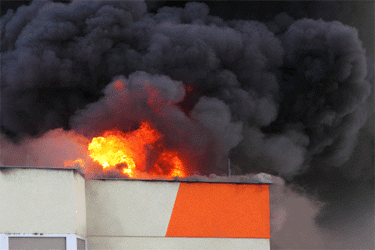Investigation Finds Sludge Dryer Led To $10M Explosion At Baltimore Wastewater Plant


New details about a major accident at a Baltimore wastewater treatment facility that took place earlier this year have revealed its causes and offered some lessons in avoiding similar incidents in the future.
“The explosion that rocked a building at the Back River Wastewater Treatment Plant in March occurred because dust caught fire in a dryer used for sewage sludge, according to a report from the Baltimore City Fire Department,” The Baltimore Sun reported. “After the dryer turned on that morning, a spark ignited the dust, according to the report from the city’s captain of fire investigation. Then, thermal oil used in the dryer was ignited as well.”
CBS News reported that the explosion caused at least $10 million in damages.
Immediately following the explosion, the Maryland Department of the Environment had suggested it was caused by hot oil escaping from a leaking pipe. Nobody was injured in the explosion and this latest investigation has confirmed that it was accidental, but the incident has not helped the plant’s already tenuous reputation.
Following excessive sewage spills into nearby source water, operation of the Back River Wastewater Treatment Plant was taken over by state regulators, though problems persisted. And equipment issues following the explosion seem to have put the facility at risk of failing to meet environmental standards once again.
“After the incident, some key equipment at the building was forced offline, raising questions among environmental advocates whose eyes already were trained on the Back River plant due to its track record of maintenance issues and pollution,” according to the Sun. “But in April — the first full month of data after the explosion — the plant narrowly exceeded its allowable average concentration of phosphorus, a harmful nutrient that promotes the excess growth of algae in waterways.”
Following the release of the fire department investigation, state legislators have opted to continue their oversight of plant operations.
“Maryland regulators have extended supervision of the beleaguered Black River Wastewater Treatment plant through July after Baltimore City reported problems at the facility following an explosion in the spring,” per The Baltimore Banner. “...the state will continue to conduct frequent inspections of the Back River plant, and require the city to take steps to mitigate the effects of the March fire and operate the facility in compliance with its permit.”
As operators attempt to establish a consistent track record at this major Baltimore wastewater treatment facility, they are certainly hoping to avoid any more major setbacks.
To read more about how drinking water and wastewater treatment facilities respond to emergencies, visit Water Online’s Resiliency Solutions Center.
